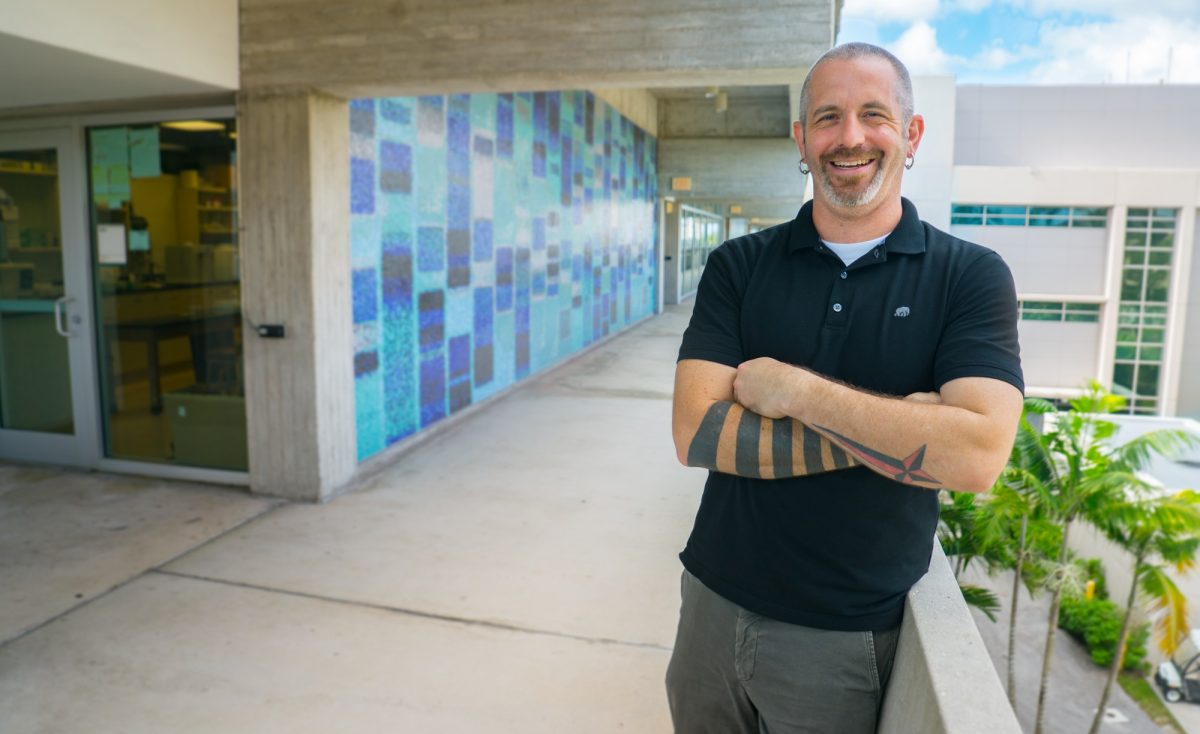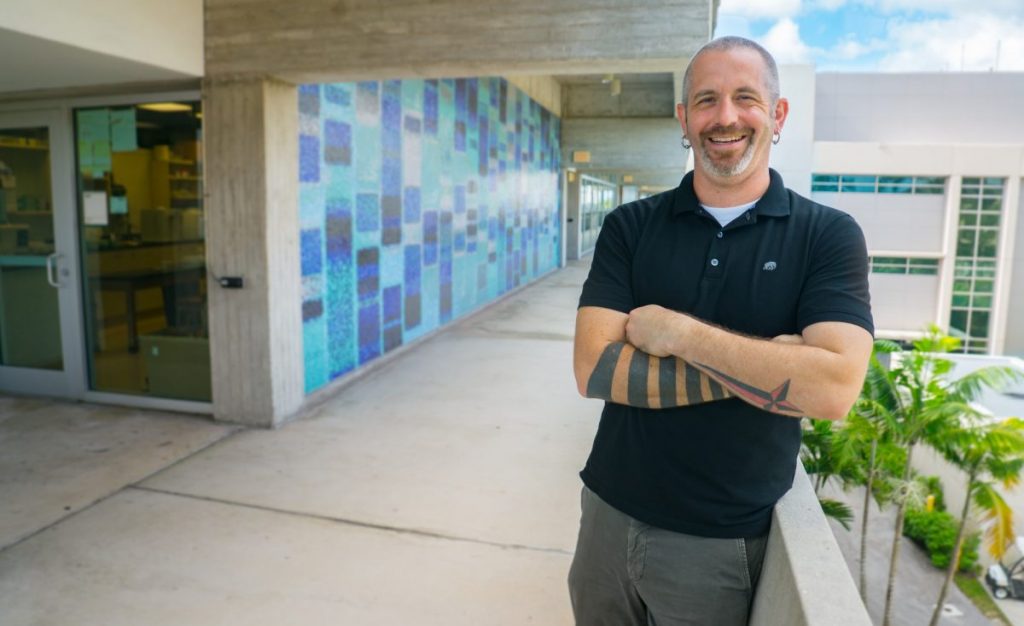

In 16 hours, associate professor William Pestle traveled to and from San Juan, Puerto Rico, to help the millions on the island ravaged by recent hurricanes.
For Pestle, Puerto Rico is an island that he has grown to love. Pestle conducted research on the island for 15 years. When Hurricane Maria barreled through Puerto Rico Sept. 20, Pestle said he felt a duty to help “our Puerto Rican students, colleagues and fellow American citizens.”
It wasn’t long after the storm hit before Pestle started searching for flights to the island to help in recovery efforts. However, because of the extensive damage and power loss to the island, the international airport was shut down. No incoming or outgoing flights were allowed.
After weeks searching for opportunities to travel to the island to donate supplies and money, Pestle managed to find a flight “at a relatively reasonable price.” In the weeks leading up to his trip, Pestle, who is married to a Puerto Rican, was able to gather between $8,000 to $10,000 worth of supplies to take to the island. Supplies included baby formula, vitamins, water purification systems and ready-to-eat meals.
Pestle boarded an American Airlines flight Oct. 5 to San Juan with 300 pounds of supplies. However, he said he had to pay nearly $600 in baggage fees before he could board. He said he didn’t mind paying the fees, but it’s unwarranted for a company to be charging while there is an ongoing humanitarian crisis.
“You’ve got a company that made $2.7 billion last year profiting off of human suffering,” said Pestle, a professor in the anthropology department. “It’s gross.”
With five 50-pound boxes and 2 suitcases on hand, Pestle arrived in Puerto Rico at an airport he said he found surprisingly operational. He was greeted by friends, family members and colleagues.
Pestle had been working with an unofficial charity group of three sisters identifying specific hurricane victims in need on the island.
“Instead of just going to the Red Cross or United Way, there are some people finding others who desperately need supplies and match them up with donors who can help them,” he said.
As soon as Pestle got off the plane and retrieved his bags, he started unpacking some of the donations. Within hours, he was back on a plane to Miami.
He said he was interested in seeing first-hand damage the island suffered but was told going in and out of the island with the sole purpose of delivering supplies was the best option.
“The biggest message communicated to me by people was that it wasn’t going to be helpful,” Pestle said. “The most helpful thing I could do was to just bring the supplies. The longer I stayed – I drink water, I eat – the more resources I would take away.”
Before leaving for the island, Pestle created a letter and petition that was presented to President Julio Frenk and his team and Provost Jeffrey Duerk.
Pestle said he drafted the letter after realizing that teaching displaced students while their home institutions were undergoing restoration was what he and his colleagues at UM could do best.
Over 200 members of UM’s faculty and staff signed the petition asking for the university to accommodate displaced students and faculty from the region for the duration of the academic calendar year at no cost.
One of the professors who signed the petition was Professor Merike Blofield, who said the petition was a part of the UM community doing “our own little bit to help.”
“We as an academic community want to reach out to the academic communities that are dealing with the devastation,” said Blofield, an associate professor in political science. “Personally, if I was in that kind of situation, it would mean something to me to have other universities help me.”
The university announced on Oct. 5, the same day Pestle traveled to Puerto Rico, that it would allow graduate students and faculty, as well as some undergraduate students, to continue their research and education at UM.
Though Pestle said the university’s decision and his trip to Puerto Rico are good places to start, there is still much to be done.
“The overwhelming feeling leaving was that it clearly wasn’t enough,” Pestle said. “The scope of the problem was just so huge. You’re talking about 3 million people. It was just a drop in the ocean. We need to, as a community, given our proximity, really think about what other steps we can take as a group.”






